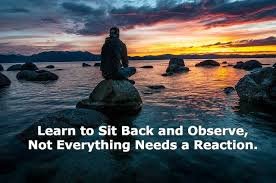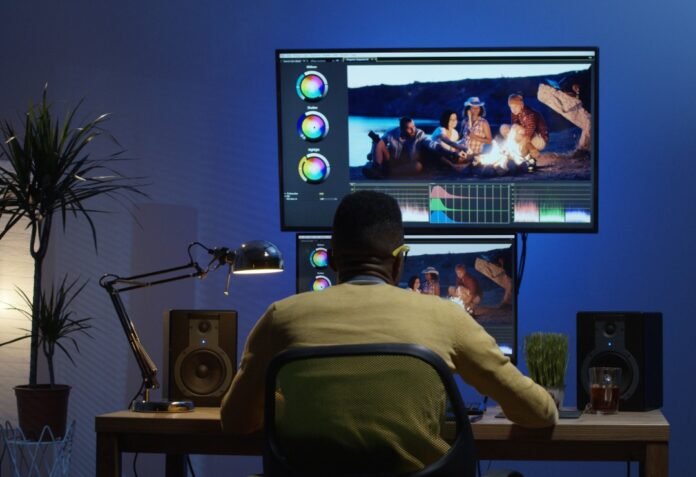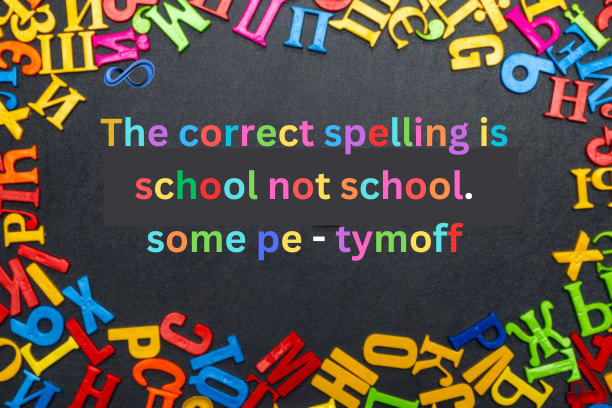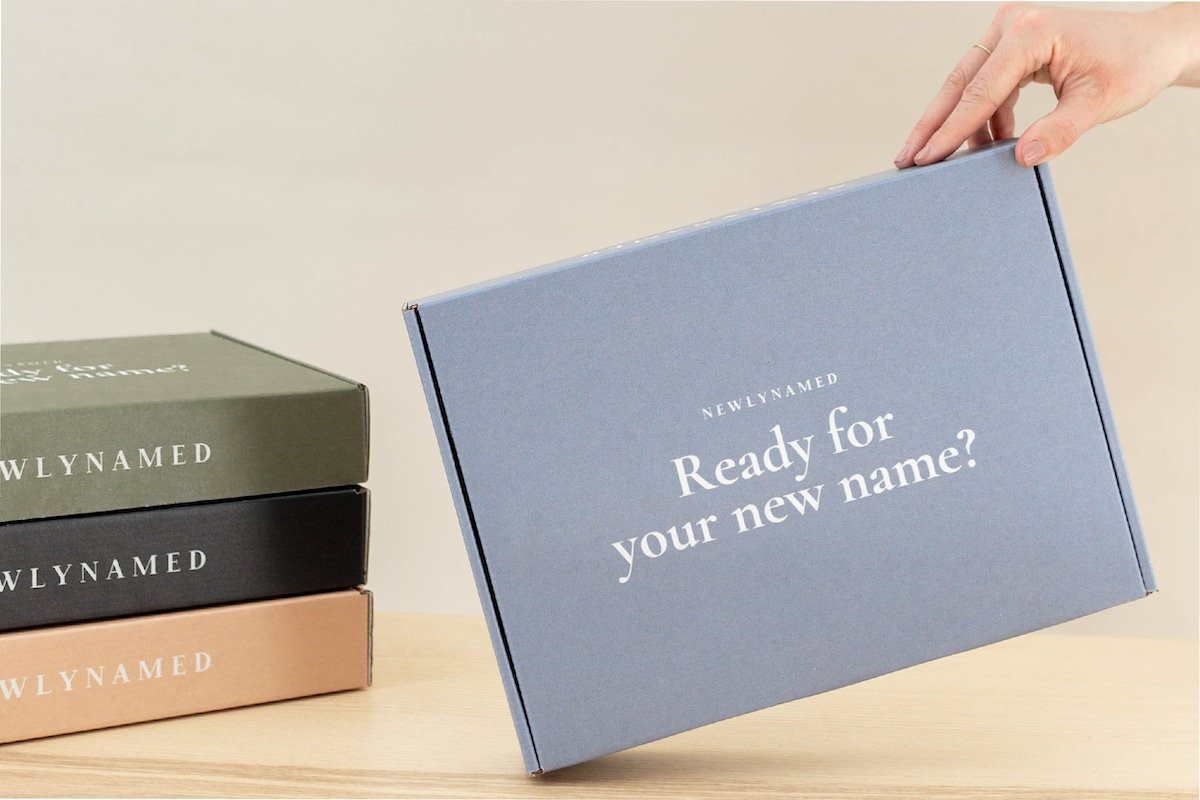In today’s fast-paced world, it often feels like we need to respond to everything instantly. Whether it’s a social media comment, a heated conversation, or a challenging situation at work, the pressure to react quickly can be overwhelming. However, there is immense value in taking a step back, observing, and allowing ourselves the time to process before responding. The wisdom in the phrase “Learn to sit back and observe. not everything needs your immediate reaction” is something we can all benefit from incorporating into our daily lives.
This article explores the importance of learning to observe before reacting, the benefits it brings, and practical steps you can take to cultivate this valuable skill. By understanding and embracing the power of patience and observation, you can improve your decision-making, strengthen your relationships, and enhance your overall well-being.
The Importance of Observation in a Reactive World
In a world where we are constantly bombarded with information, it can be easy to fall into the trap of reacting without fully understanding the situation. Whether it’s a news story that sparks an emotional response or a disagreement with a colleague, our instinct to react quickly can sometimes lead to misunderstandings, conflict, or regret.
Learning to sit back and observe allows us to take in the full context of a situation before responding. This approach helps us to see things more clearly, consider different perspectives, and make more thoughtful decisions. By observing first, we can avoid impulsive reactions that may not serve us or others well.
1. Observation Enhances Understanding
When we take the time to observe, we gather more information about the situation at hand. This deeper understanding can reveal nuances that we might have missed if we had reacted immediately. For example, in a conversation, observing the other person’s body language, tone of voice, and choice of words can provide insights into their emotions and intentions. This understanding can help us respond in a way that is more empathetic and effective.
2. Reducing Stress Through Patience
Reacting quickly can often lead to unnecessary stress. When we feel the need to respond immediately, we may experience anxiety or pressure to say or do the right thing. By learning to sit back and observe, we give ourselves the space to process our emotions and thoughts, reducing the stress associated with quick decision-making. This patience allows us to approach situations with a calmer and more centered mindset.
The Benefits of Not Reacting Immediately
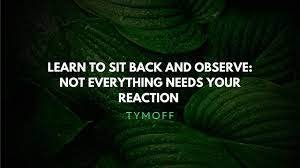
Choosing not to react immediately has several benefits that can positively impact various aspects of our lives. By practicing patience and observation, we can improve our relationships, decision-making, and personal growth.
1. Improved Decision-Making
When we take the time to observe and consider all aspects of a situation, we are more likely to make informed and thoughtful decisions. This deliberate approach can prevent us from making hasty choices that we might later regret. Whether it’s a personal decision or a professional one, taking the time to observe and reflect can lead to better outcomes.
2. Stronger Relationships
In our interactions with others, the ability to observe and understand before reacting can lead to stronger and more meaningful relationships. By listening and observing, we show others that we value their perspective and are willing to consider their point of view. This can foster trust, respect, and open communication, all of which are essential for healthy relationships.
3. Personal Growth and Self-Awareness
Learning to sit back and observe also promotes personal growth and self-awareness. By taking the time to reflect on our reactions and responses, we can gain insights into our own behaviors, triggers, and thought patterns. This self-awareness allows us to grow and develop a more mindful approach to life, where our actions are guided by intention rather than impulse.
How to Cultivate the Skill of Observation
Cultivating the skill of observation and learning to refrain from immediate reactions is a practice that requires mindfulness, patience, and self-discipline. Here are some practical steps you can take to develop this valuable skill:
1. Practice Mindful Breathing
One of the simplest ways to create a pause before reacting is to practice mindful breathing. When faced with a situation that triggers an emotional response, take a moment to focus on your breath. Inhale deeply, hold for a few seconds, and then exhale slowly. This practice can help calm your mind and body, giving you the space to observe the situation more clearly.
2. Ask Yourself Reflective Questions
Before reacting, take a moment to ask yourself reflective questions such as: “What is really happening here?” “How am I feeling, and why?” “What are the possible consequences of my reaction?” These questions can help you gain a deeper understanding of the situation and consider the impact of your response.
3. Embrace the Power of Silence
Silence can be a powerful tool in observation. When you choose not to react immediately, you create a space where you can listen, observe, and reflect. This silence allows you to gather more information and respond thoughtfully rather than impulsively. In conversations, silence can also encourage others to share more, giving you a better understanding of their perspective.
4. Reflect on Past Reactions
Take time to reflect on past situations where you reacted quickly. Consider the outcomes and whether they would have been different if you had taken the time to observe first. This reflection can help you identify patterns in your behavior and reinforce the importance of patience and observation in future interactions.
5. Practice Patience in Small Moments
Cultivating observation and patience doesn’t have to start with major life decisions. Begin by practicing in small, everyday moments. For example, when waiting in line or stuck in traffic, instead of reacting with frustration, take the opportunity to observe your surroundings, reflect on your thoughts, or simply enjoy the moment of stillness.
Read more: How Late Is the Closest Grocery Store Open? Your Guide to After-Hours Shopping
FAQ: Learn to Sit Back and Observe
A: Learning to sit back and observe is important because it allows you to gather more information, understand situations better, and make more thoughtful decisions. It helps you avoid impulsive reactions that might lead to misunderstandings or regrets.
A: You can practice observing before reacting by taking a few deep breaths, asking yourself reflective questions, embracing silence, and reflecting on past experiences. Starting with small moments in your daily life can help you develop this skill.
A: The benefits of not reacting immediately include improved decision-making, stronger relationships, reduced stress, and increased self-awareness. By taking the time to observe, you can respond more effectively and thoughtfully in various situations.
A: Observation can improve your relationships by allowing you to better understand the emotions and perspectives of others. When you take the time to observe before responding, you show respect for the other person’s viewpoint, which fosters trust and open communication.
A: Yes, learning to observe can help with stress management by reducing the pressure to react immediately. By creating a pause before responding, you can approach situations with a calmer mindset, which helps in managing stress more effectively.
Conclusion: Embracing the Power of Observation
The ability Learn to sit back and observe is a powerful skill that can transform the way we interact with the world. By learning to take a step back and observe, we can gain a deeper understanding of situations, make better decisions, and build stronger relationships. Not everything requires an immediate reaction, and sometimes, the most powerful response is the one that is carefully considered and thoughtfully delivered.
Incorporating observation into your daily life requires mindfulness and practice, but the benefits are well worth the effort. As you develop this skill, you’ll find that you are more in control of your reactions, more aware of your emotions, and better equipped to navigate the complexities of life with grace and wisdom. So, the next time you feel the urge to react quickly, remember to pause, observe, and allow yourself the time to respond in a way that truly reflects your values and intentions.


